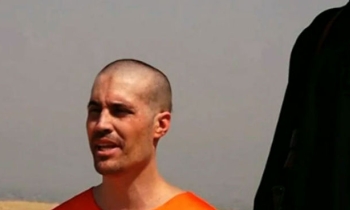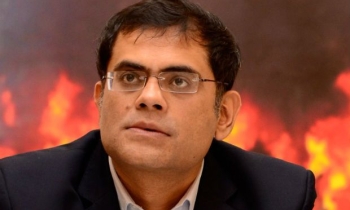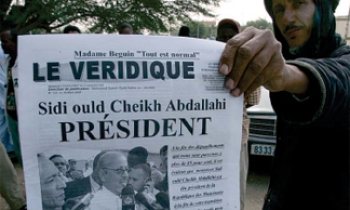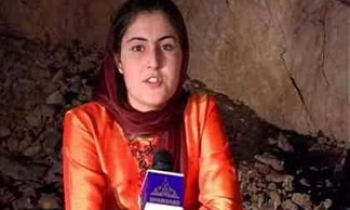KUALA LUMPUR , Jan 7 (IPS) - News reports based on secret video grabs of a woman forced to do 'nude squats' in police custody, which put the Malaysian government in a spot over human rights, have backfired on press freedom as it turned out that the victim's nationality had been wrongly identified.
The widely-circulated, Chinese-language daily newspaper China Press' which broke the story was, on Friday, obliged to publish its 'deepest apology'' on the front page for having wrongly identified the victim as a Chinese national when she turned out to be a local and ethnic Malay.
Worse, the newspaper had to sack its top two editors to stave off suspension of its publishing license, leading to speculation that this could be the beginning of tough measures against the press in this country.
The China Press practiced a feisty, in-your- face' reporting style that won it public accolades but constantly angered the internal security ministry, that regulates publications.
On Nov 23, the newspaper published an exclusive story and photographs lifted from the video clip showing police forcing a young, naked woman to perform squats. But the paper also erroneously identified the victim as a Chinese national, sparking off a diplomatic row with Beijing.
After Beijing lodged an official protest, Malaysia sent across a mission, headed by home minister Datuk Seri Azmi Khalid, to apologise for the mistreatment of its nationals. The reports of the video followed complaints by Chinese women visitors, held for visa violations, that they had been made to perform humilitating nude squats in custody.
While China Press rectified the error the next day, the damage had been done and the Malaysian government was angered at being compelled to apologise.
On Thursday, editor-in-chief Chong Choong Nam and executive editor-in-chief Wang Zhao Ping were sacked and the paper made to eat humble pie. In a statement, the editors took 'full responsibility for the glaring mistake in the report''.
The alternative could have been far worse -- the Ministry has powers to suspend or cancel the newspaper's publishing licence and the laws do not permit judicial review.
"The two editors were sacrificed to satisfy the demand for blood and injured ego," said James Wong, senior analyst for Malaysiakini, an independent news website. "They are the scapegoats."
Wong said the action is a "menacing message" intended to frighten all other editors into giving up their new found boldness to practice limited press freedom. "They have been given notice to submit to the official line," he told IPS. "As a Chinese proverb goes, they killed one chicken to warn the rest of the monkeys.''
"The action also shows that systematic oppression continues and that all the rhetoric of transparency and accountability are just a politician's slogans," he said.
The paper, that sells about 300,000 copies a day and gives priority to politics and violent crime in its reporting received two show-cause letters from the internal security ministry, which is headed by Prime Minister Abdullah Badawi himself, demanding explanations.
"It is too harsh a punishment for one small mistake," said Lim Guan Eng, secretary general of the opposition Democratic Action party. "An apology should have been sufficient."
The sacking has rallied democracy activists across the country into protesting the lack of press freedom in the country.
Human rights movement ALIRAN' said in a statement that the punishment meted out to China Press indicated that the outlook for media freedom is not bright. "What is disturbing about this episode is that the state has deliberately intervened in a journalistic matter that could have been handled by the management of the newspaper concerned.''
China Press is owned by Nanyang Press Holdings Group, which is directly linked to the Malaysian Chinese Association, the second biggest party in the ruling National Front coalition.
Human rights activists and press freedom advocates argue that the mistake was a genuine and consideration had to be given to the circumstances under which China Press first broke the story.
"Tell me the truth," was Badawi's famous phrase on taking power in Nov. 2003, urging Malaysians to speak up against the injustice, corruption and abuse of power that had marked the long rule of his dictatorial predecessor, Mahathir Mohamad.
But human rights activists have been warning that despite Abdullah's new rhetoric of transparency, accountability and freedom, the mailed fist was lurking nearby. And now it has struck.
The New Straits Times, regarded as a pro-government paper, saw the move as a signal that Abdullah is "prepared to wield the big stick as he moves into his third year in office."
"The mistake was not malicious and an apology from the daily would have been sufficientàthis is the normal thing to do," Lim told IPS. "There was no need to force editors to resign.
"It does not bode well for press freedom in the country," said Sonia Randhawa, executive director of the Center for Independent Journalism. "We strongly condemn the political interference in the newsroom that has resulted in these sackings and call for the repeal of the licencing provisions in the Printing Presses and Publications Act,'' she told IPS.
Over a dozen laws curb press freedom but the most draconian is the Printing Presses and Publications Act. This law requires all publishers to apply for a new publishing permit every year forcing them to toe the line or go out of business.
"Such laws have a chilling effect on media freedom and they deter journalists from carrying out independent, investigative journalism, while making editors exercise extra caution and frequently practice self-censorship," said Wong.
On Saturday, deputy information minister Donald Lim Siang Chai told presspersons that the government expected mass media to be responsible and that dissemination of news had to consider the sensitivities of the country's multi-racial society.
Malays who form 50 percent of Malaysia's 24 million population and ethnic Chinese who make up another 25 percent are the two dominant communities in the country. Relations between them are uneasy.
Does the sacking of the China Press editors signal the end of a brief spring under Abdullah, coming after the heavy-handed rule by his predecessor, Mahathir Mohammed over?
Not yet, says Wong. "The battle between the conservatives in government who grew in strength under Mahathir Mohamad's long rule and the liberals is still ragingà the liberals have suffered a defeat but the war is not over yet."









